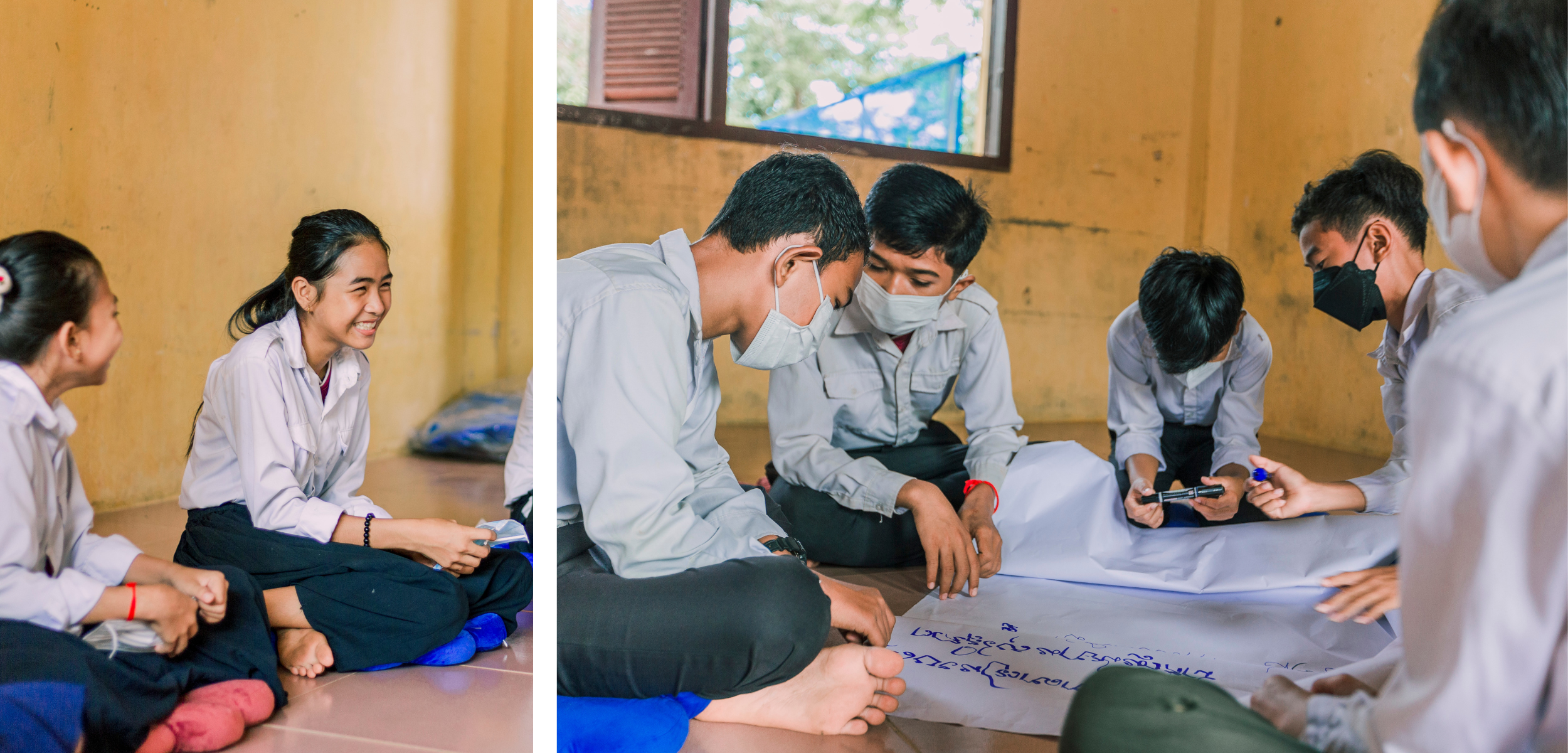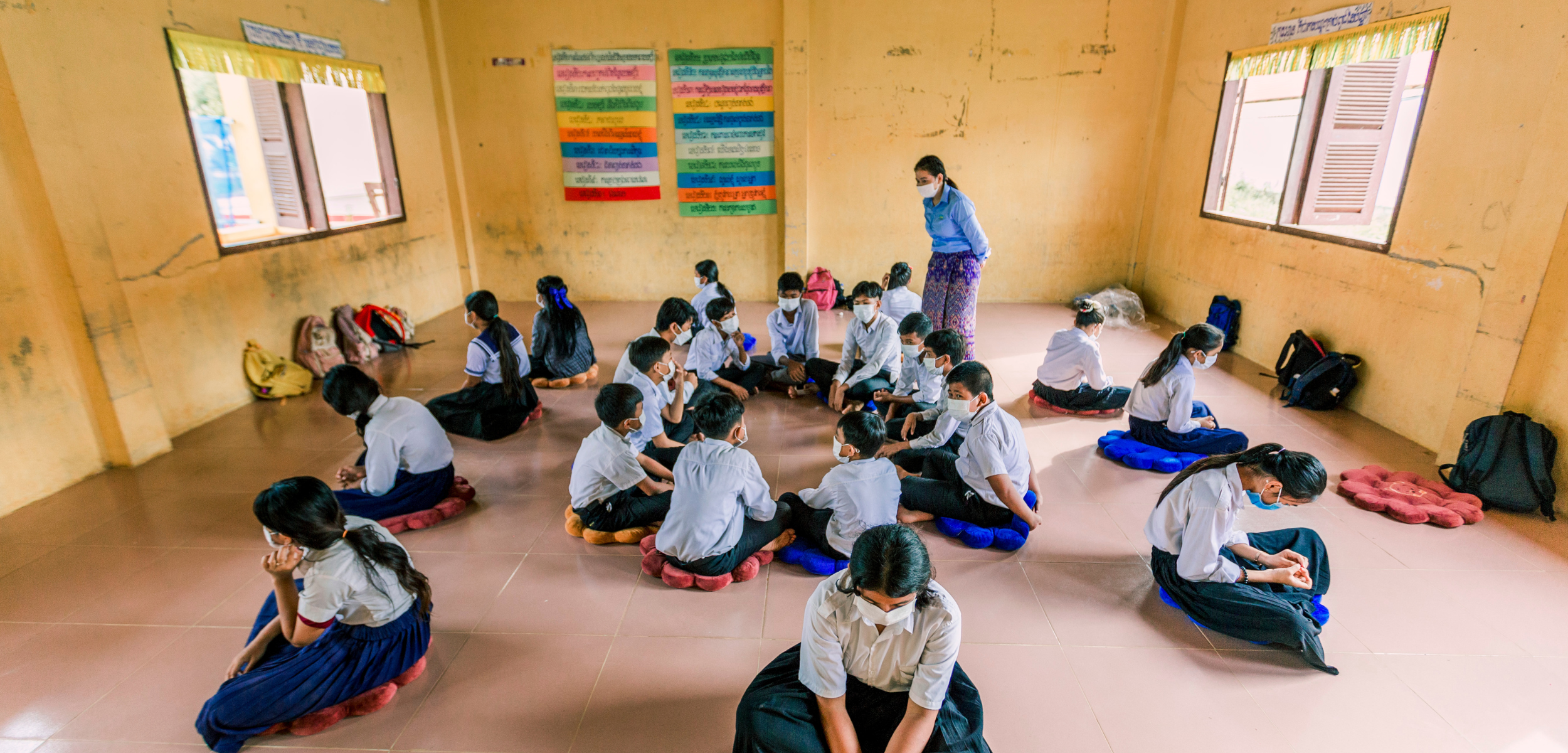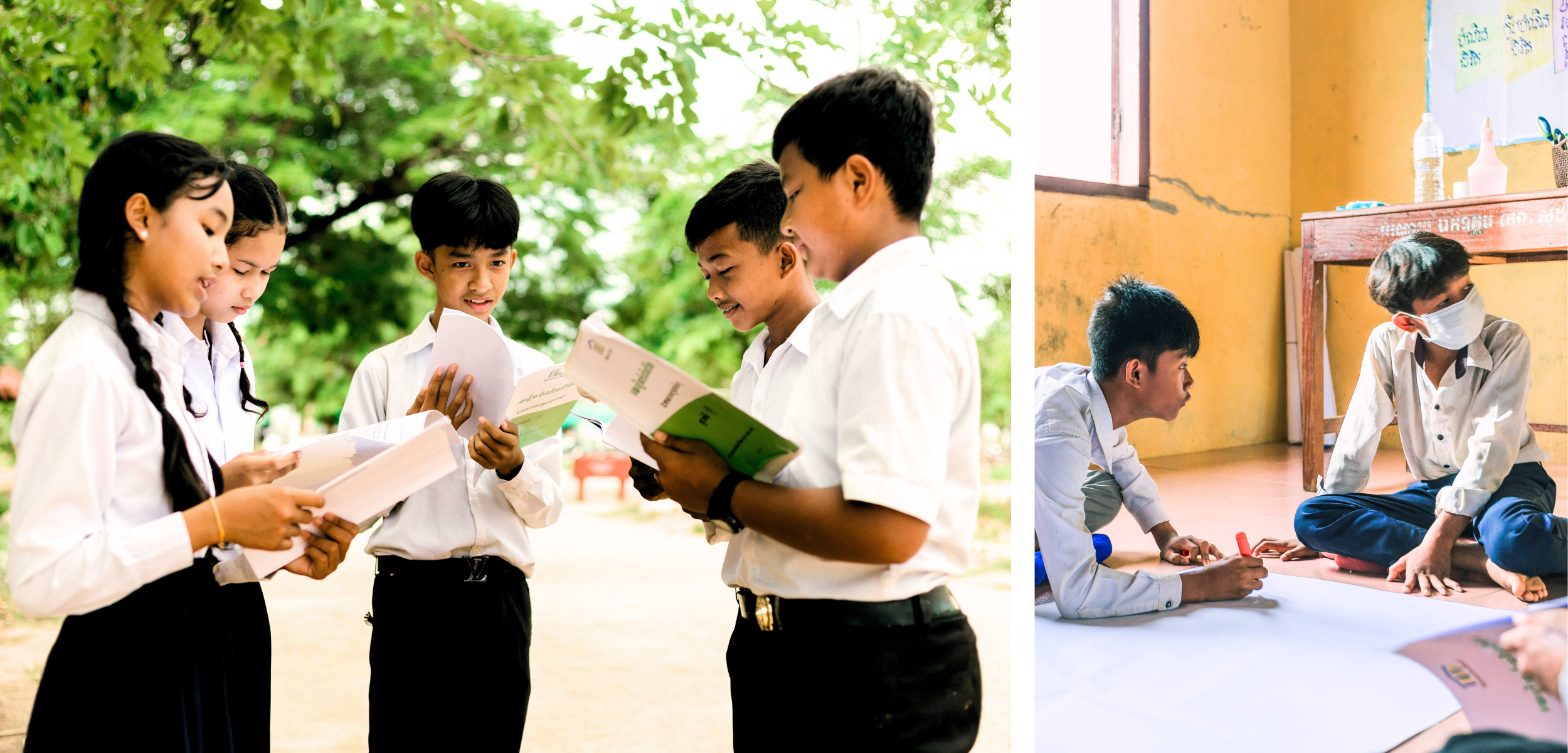
By Fernanda Gándara
Director of Research, Monitoring and Reporting for Room to Read's Girls’ Education Portfolio
First implemented in 2022, Room to Read’s Life Skills for Equality Project is a two-year pilot program in Cambodia that provides life skills like emotional resilience and collaboration, and gender education to boys so that they can succeed in school and life and become allies in the fight for gender equality. Working with boys is critical, as harmful gender norms affect everyone, and dismantling and redefining these norms will require the engagement of people of all genders.
To support the implementation and scale up of the program, Room to Read’s Research, Monitoring and Evaluation (RME) team designed a robust multi-stage, mixed-methods program evaluation. So far, the results of the evaluation have shown that participants of the Life Skills for Equality Project have increased their awareness of gender-related concepts, particularly on the areas of puberty, sexuality and health, gender-based violence, gender-based roles and the limiting notions surrounding the concept of masculinity. In addition, the evaluation has shown that participants have become more aware of the quality of the interactions with girls, and are acquiring life skills, among other results [1]. We are currently conducting an endline evaluation of the Life Skills for Equality project, which should shed light on the robustness of these findings and participants’ changes in behaviors across different contexts (e.g. schools, homes, communities, etc.).
[1] For more on the LSEP evaluation results, go to roomtoread.org/impact-and-reach

The research, monitoring and evaluation efforts for the Life Skills for Equality Project are largely centered around understanding
(a) whether its theory of change is adequate,
(b) the characteristics of its implementation that are more promising, and
(c) perceived and observed changes among participants.
At the heart of this learning agenda lies our aim to understand whether and how the program can improve participants’ outcomes and behaviors. However, the unique features of the Life Skills for Equality Project have allowed Room to Read’s RME team to explore additional measurement issues in gender knowledge and attitudes. In particular, some of the Life Skills for Equality Project sessions are conducted in mixed educational settings, with students of all genders, some of whom are part of Room to Read’s flagship Girls’ Education Program. Therefore, the team has also gathered data about girls’ outcomes and experiences. In doing so, the RME team has gained relevant insight about the structural differences in gender knowledge and attitudes across students of different genders [2].
[2] LSEP and GEP rely on school data to identify students’ gender. Most often, this data offers the binary options of ‘girl’ and ‘boy’. We recognize that children of all genders take part in our Girls' Education Program and Life Skills for Equality Project.
Staff on RME have gathered data on gender knowledge and attitudes for boys and girls, across two data collection points. Psychometric techniques [3] reveal that boys may hold higher expectations about girls’ ability to achieve educational and life outcomes than girls themselves. Boys tend to endorse statements such as "girls can become engineers or scientists" at higher rates than girls who would otherwise endorse at similar levels of gender knowledge. Such results could point towards a presence of internalized negative stereotypes among girls.
On the other hand, psychometric analyses show that boys hold positive attitudes towards gender equality but are not necessarily willing to give up privileges that are traditionally assigned to them. For example, everything else constant, boys tend to endorse statements such as "daughters should have a similar right to inherit property as sons" at lower rates than girls. This suggests that boys may endorse socially desirable norms but may not be ready to fully embrace gender equality in their behaviors [4].
[3] Such as factor analyses and differential item functioning
[4] See López-Hornickel & Sandoval-Hernández (2023) — "Profiles of Attitudes Toward Gender Equality among Latin American Adolescents" — for a recent analysis of profiles towards gender equality. The LSEP results suggest that boys in the program are somewhat "normative egalitarians."
The endline evaluation of the Life Skills for Equality Project pilot, as well as future evaluations of Room to Read’s boys’ inclusion efforts, will provide a unique opportunity to examine these ideas in more depth. We have expanded our evaluation tools to examine these trends with more depth and rigor. The analysis of the endline data collection of the Life Skills for Equality Project evaluation will allow us to test whether these trends begin to change, and if so, in which direction.
The endline analysis will also provide an opportunity to examine the longitudinal relationship between life skills and changes to gender knowledge and attitudes. We look forward to understanding the extent to which these structural differences exist and persist after exposure to gender-transformative life skills programs. By doing so, our team will be able to reflect on appropriate dosages and sequences for their programming.
We also look forward to sharing more measurement insights from our Girls’ Education Program in the form of evaluation reports, blog entries and academic publications in the future.



